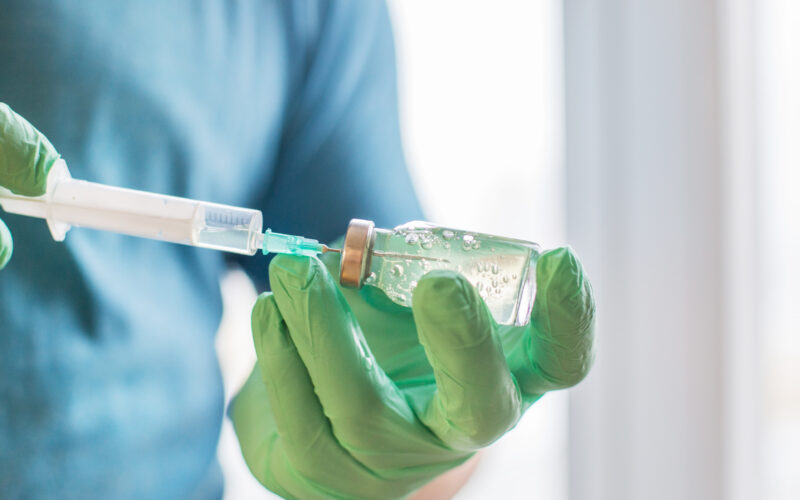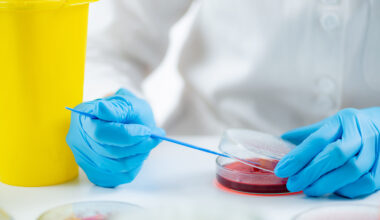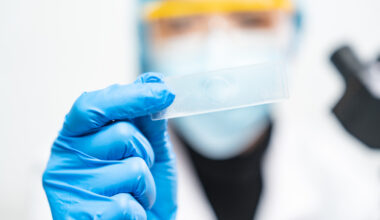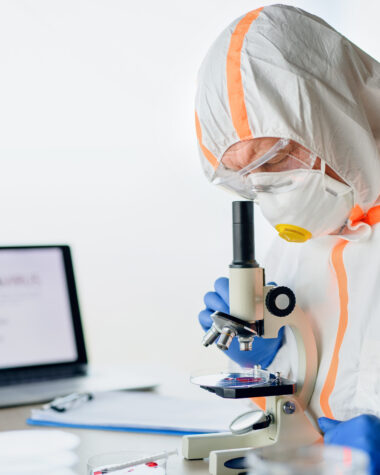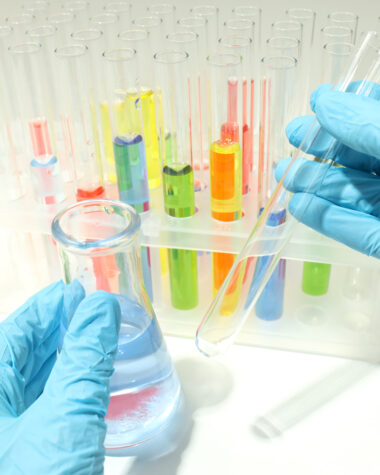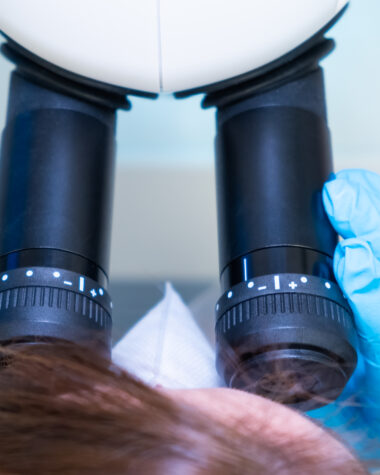Akero Therapeutics, Inc. (NASDAQ:AKRO) is a clinical-stage biotechnology company headquartered in South San Francisco, California, focused on developing transformative treatments for serious metabolic diseases, particularly nonalcoholic steatohepatitis (NASH), now referred to as metabolic dysfunction–associated steatohepatitis (MASH). Founded in 2017, Akero has positioned itself at the forefront of liver disease innovation, leveraging advanced biotechnology and endocrine science to address one of the most pressing unmet needs in modern medicine. The company’s mission centers on developing effective, accessible therapies that improve the lives of patients suffering from complex metabolic disorders linked to obesity, diabetes, and cardiovascular conditions.
At the heart of Akero’s research is its lead drug candidate, efruxifermin (EFX), a long-acting analog of fibroblast growth factor 21 (FGF21). This novel compound is designed to restore metabolic balance and reverse liver fibrosis in patients with MASH, a disease that affects millions globally but has no approved cure. The company’s pipeline strategy integrates EFX into multiple late-stage clinical programs, targeting both pre-cirrhotic and cirrhotic stages of liver disease. By focusing on FGF21 biology, Akero aims to harness the hormone’s natural role in regulating lipid metabolism, glucose control, and inflammation — pathways crucial to liver health and overall metabolic function.
Over the years, Akero has demonstrated consistent scientific rigor, delivering encouraging data from its Phase 2b HARMONY and SYMMETRY studies, where patients showed significant improvements in fibrosis regression and liver fat reduction. These results have drawn attention from both the scientific community and major pharmaceutical partners. The company’s ongoing Phase 3 trials represent a defining moment in its journey toward potential commercialization. If successful, Akero could emerge as one of the first biotech firms to bring a disease-modifying therapy to a patient population estimated at over 25 million globally.
Akero’s leadership team includes industry veterans with deep expertise in drug development, endocrinology, and metabolic disease management. Their combined experience spans decades across major pharmaceutical and biotech companies, providing the organization with a strong foundation for regulatory strategy, commercialization, and global expansion. Backed by a diverse base of institutional investors and strategic partners, Akero has built a reputation for disciplined execution and transparency, even as it navigates the high-risk landscape of clinical-stage biotech development.
Financially, Akero maintains a conservative capital structure with strong liquidity, reporting over $1.1 billion in total assets and $220 million in cash reserves as of mid-2025. This fiscal discipline has enabled the company to advance its clinical programs without overreliance on debt financing. However, as with most pre-commercial biotech companies, Akero continues to operate at a net loss as it invests heavily in research and development, with recent quarterly losses of around $70 million reflecting ongoing clinical and operational scaling.
Beyond its internal pipeline, Akero has also cultivated strategic partnerships and collaborations to expand its research scope and accelerate development timelines. These alliances not only provide scientific and financial leverage but also reflect growing confidence in Akero’s FGF21-based therapeutic platform. The company’s emphasis on precision medicine, biomarker-based patient selection, and translational science further distinguishes it from competitors pursuing broader, less targeted approaches to liver and metabolic disease treatment.
Today, Akero Therapeutics stands as one of the most closely watched players in the metabolic and liver disease sector. Its data-driven approach, deep scientific foundation, and late-stage clinical progress position it as a potential leader in next-generation therapeutics for MASH and related metabolic conditions. As the biotech industry awaits the outcome of its pivotal trials, Akero’s trajectory embodies the intersection of science, innovation, and the urgent global need for effective solutions to chronic liver disease.
Weak Financial Performance Overshadowed by Short-Term Market Euphoria
Despite the surge in market capitalization, Akero’s financials remain far from robust. The company reported total assets exceeding $1.1 billion, but its net income slipped to a loss of nearly $70 million in the second quarter of 2025 — a sharp reminder that operational profitability remains distant. While some traders are fixated on near-term price momentum, deeper financial inspection reveals that revenue growth has remained largely stagnant over the past three years. This stagnation, coupled with consistent net losses, underscores the high-risk nature of Akero’s valuation — one driven primarily by speculation rather than proven commercial performance.
Akero’s balance sheet does reflect some strengths, including a current ratio of 12.7 and a low debt-to-equity ratio of 0.04, indicating solid liquidity and minimal leverage. However, these numbers tell only part of the story. The company’s cash reserves of $220 million may appear ample, but with ongoing R&D expenditures, large-scale clinical trial costs, and potential regulatory delays, that buffer could erode rapidly. Biotech companies without commercialized products often face cyclical funding challenges, and Akero is no exception — dilution via equity offerings remains a looming risk.
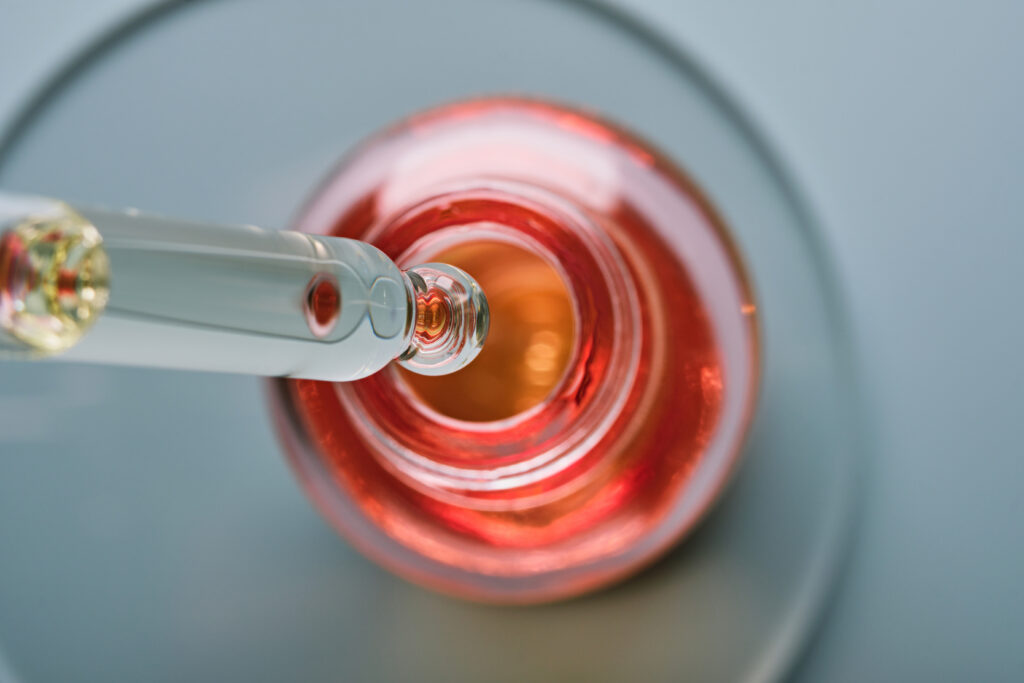
CHECK THIS OUT: Corcept (CORT) Skyrockets 1,534% in 10 Years and Immuneering (IMRX) Reports 86% 9-Month Survival in Pancreatic Cancer.
A Single-Drug Dependency That Amplifies Downside Risk
Akero’s entire valuation hinges on the future success of its experimental drug efruxifermin (EFX), an FGF21 analog being tested for MASH and advanced liver fibrosis. The drug has shown encouraging data in Phase 2b studies, but the jump from mid-stage success to Phase 3 approval remains treacherous. The MASH/NASH drug development space is notorious for late-stage trial failures due to variability in histological endpoints, biopsy inconsistency, and patient heterogeneity. The binary nature of biotech trial outcomes means even a modest underperformance in efficacy or safety could vaporize billions in shareholder value overnight.
Compounding this is Akero’s lack of diversification. With no secondary pipeline asset of equal importance, the company’s risk exposure is extreme. If the Phase 3 SYMMETRY and HARMONY trials fail to meet primary endpoints or experience enrollment delays, Akero would face both valuation collapse and a costly restart. Even if successful, commercialization would take time, and market entry would occur in a highly competitive field already being reshaped by larger players such as Novo Nordisk and Eli Lilly, whose GLP-1–based obesity and metabolic drugs are redefining the treatment landscape.
Competitive and Market Pressures Threaten Long-Term Value
MASH and metabolic liver diseases have become prime targets for pharmaceutical giants, each with deeper pockets and established global infrastructure. If GLP-1–based therapies demonstrate spillover benefits for liver fat reduction and fibrosis improvement, Akero’s EFX could be rendered less relevant or even obsolete. Additionally, pricing power could become severely limited once competitors with diversified metabolic pipelines enter the same therapeutic domain.
The biotech sector has seen this pattern repeatedly: small-cap innovators spark excitement with breakthrough mechanisms, only to face competitive displacement once larger players bring broader solutions to market. For Akero, these structural dynamics make it difficult to project sustained long-term revenue growth even in a successful approval scenario.
Strategic Partnerships May Signal Strength — or Survival Mode
Akero has announced a string of strategic partnerships and research collaborations in recent months, which initially appeared to expand its reach and attract institutional credibility. However, industry observers note that partnerships at this stage often serve a dual purpose: shoring up cash flow and externalizing R&D risk. While these alliances can accelerate development, they also dilute control and future revenue share. Without clear commercial terms or royalty visibility, these partnerships might be more indicative of a liquidity management strategy than a sign of genuine expansion strength.
Moreover, if Akero’s data fails to impress in subsequent trial phases, these partnerships could dissolve, removing the external support that currently underpins investor confidence.
Valuation Disconnect and the Risk of Over-Optimism
Financial analysts have begun drawing parallels between Akero and historical biotech bubbles, where early data led to excessive valuations unmoored from fundamentals. With a market capitalization now buoyed by speculative optimism rather than earnings, Akero’s valuation could quickly unwind if enthusiasm fades. The 16.52% single-day rally highlights the volatility that defines biotech investing — particularly when short-term traders dominate volume spikes following news catalysts.
The company’s limited revenue growth, ongoing losses, and dependency on one experimental drug make it vulnerable to sharp corrections. The absence of recurring cash flow means that any delay, regulatory hurdle, or competitor breakthrough can have an outsized negative impact on shareholder value.
The Psychological Trap of Momentum Trading in Biotech
The recent trading frenzy around Akero demonstrates a familiar behavioral bias: retail and institutional investors chasing perceived “breakthrough” stocks after positive headlines. While optimism has its place, it often overshadows the harsh reality that biotech investing remains binary and capital-intensive. As lead trainer Tim Bohen of StocksToTrade aptly remarked, “Success in trading is more about cutting losses quickly than finding winners.” For Akero, the wave of bullish sentiment could easily reverse once profit-takers exit and fundamental concerns regain focus.
Akero’s Q2 loss of $70 million serves as a sober reminder that beneath the fanfare of medical breakthroughs lies an enterprise still burning through capital without clear revenue visibility. Its financial runway and speculative valuation make it highly sensitive to both sentiment shifts and macro-level biotech market corrections.
Conclusion: A Fragile Rally Masking Deep Uncertainty
Akero Therapeutics’ recent stock surge reflects market euphoria rather than fundamental strength. While the company’s new trial data and strategic alliances have undoubtedly rekindled investor enthusiasm, its long-term prospects remain fraught with risk. Heavy dependence on a single unapproved therapy, competitive threats from larger pharmaceutical companies, and consistent financial losses paint a more sobering picture than the recent 16% price jump suggests.
For cautious investors, Akero represents the quintessential biotech paradox: high potential upside paired with equally severe downside risk. Until the company can convert promising data into regulatory approval and sustainable revenue, its rally may prove to be less of a breakthrough — and more of a speculative mirage.
READ ALSO: Tiziana (TLSA) Surges 143% in 2025 and Immuneering (IMRX) Reports 86% 9-Month Survival in Pancreatic Cancer.
